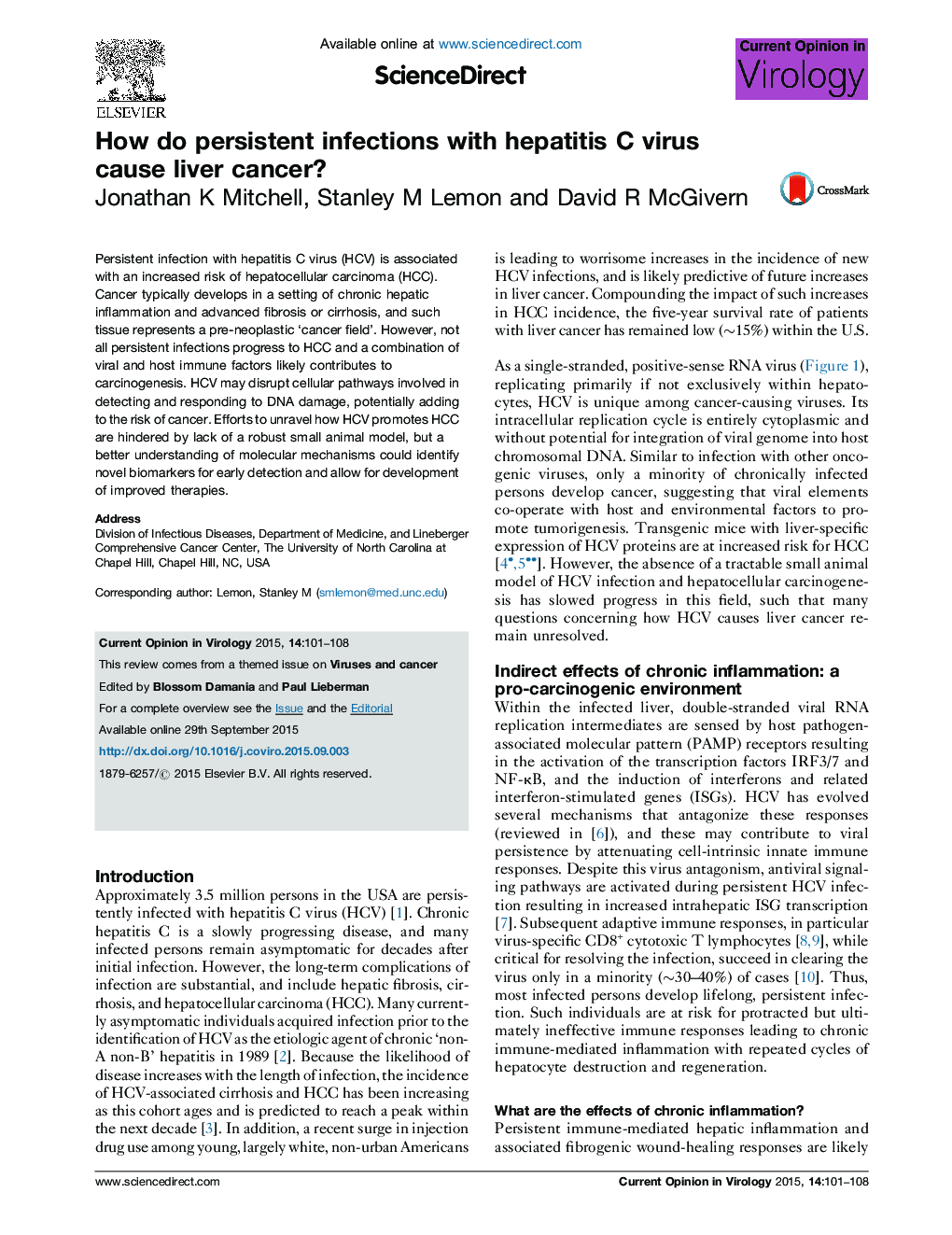| Article ID | Journal | Published Year | Pages | File Type |
|---|---|---|---|---|
| 2473254 | Current Opinion in Virology | 2015 | 8 Pages |
•The incidence of HCV-associated liver cancer will rise over the next decade.•Chronic inflammation and hepatic fibrosis are important drivers of liver cancer.•HCV-infected cirrhotic liver represents a ‘field of cancerization’.•Genetic studies highlight a role for host genome instability in carcinogenesis.•Virus disruption of host responses to DNA damage may contribute to HCC.
Persistent infection with hepatitis C virus (HCV) is associated with an increased risk of hepatocellular carcinoma (HCC). Cancer typically develops in a setting of chronic hepatic inflammation and advanced fibrosis or cirrhosis, and such tissue represents a pre-neoplastic ‘cancer field’. However, not all persistent infections progress to HCC and a combination of viral and host immune factors likely contributes to carcinogenesis. HCV may disrupt cellular pathways involved in detecting and responding to DNA damage, potentially adding to the risk of cancer. Efforts to unravel how HCV promotes HCC are hindered by lack of a robust small animal model, but a better understanding of molecular mechanisms could identify novel biomarkers for early detection and allow for development of improved therapies.
